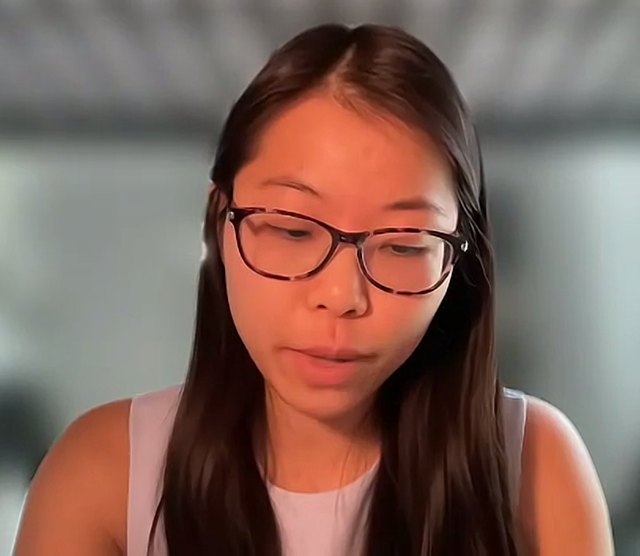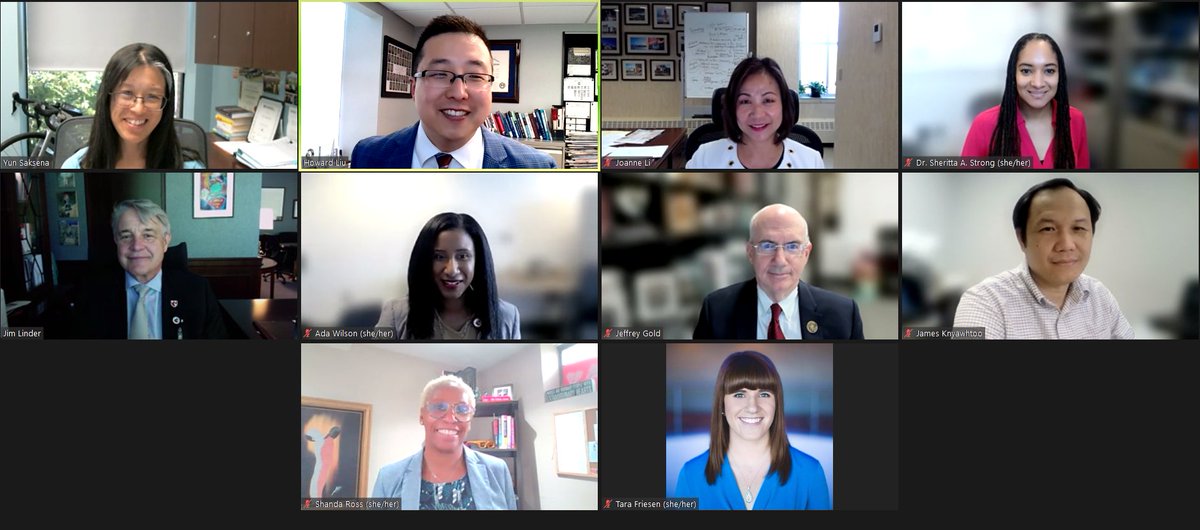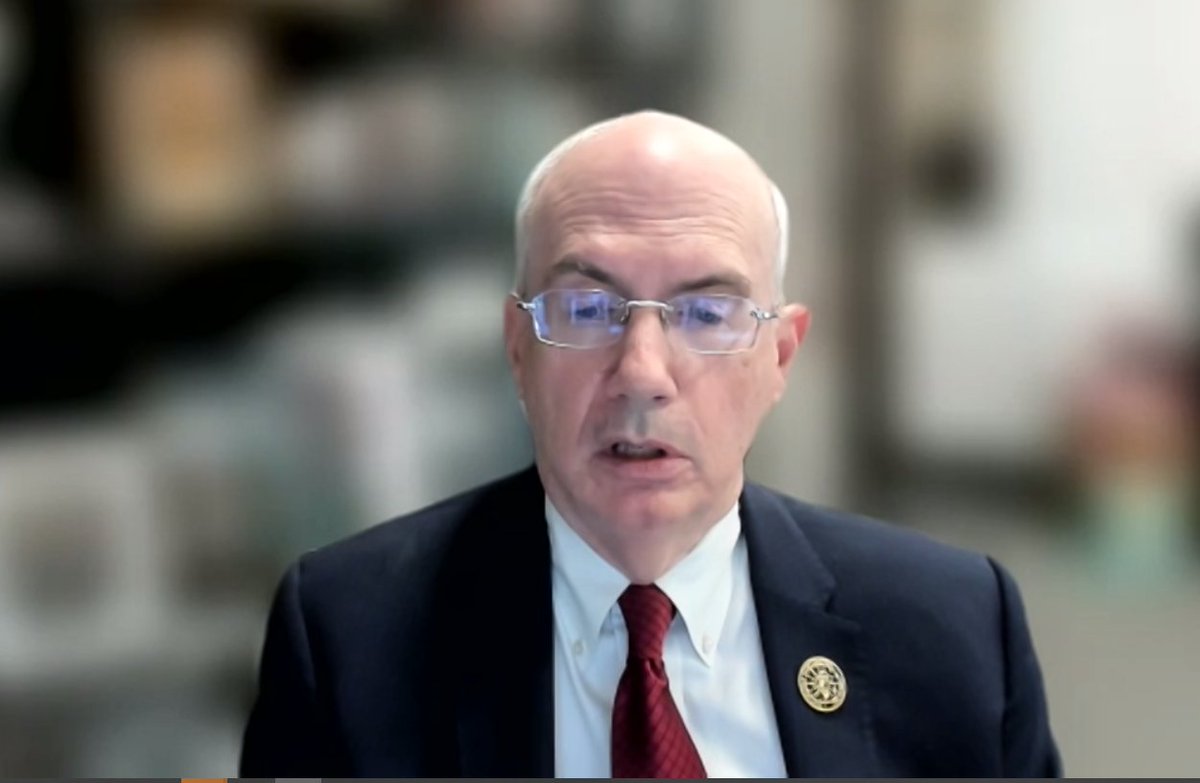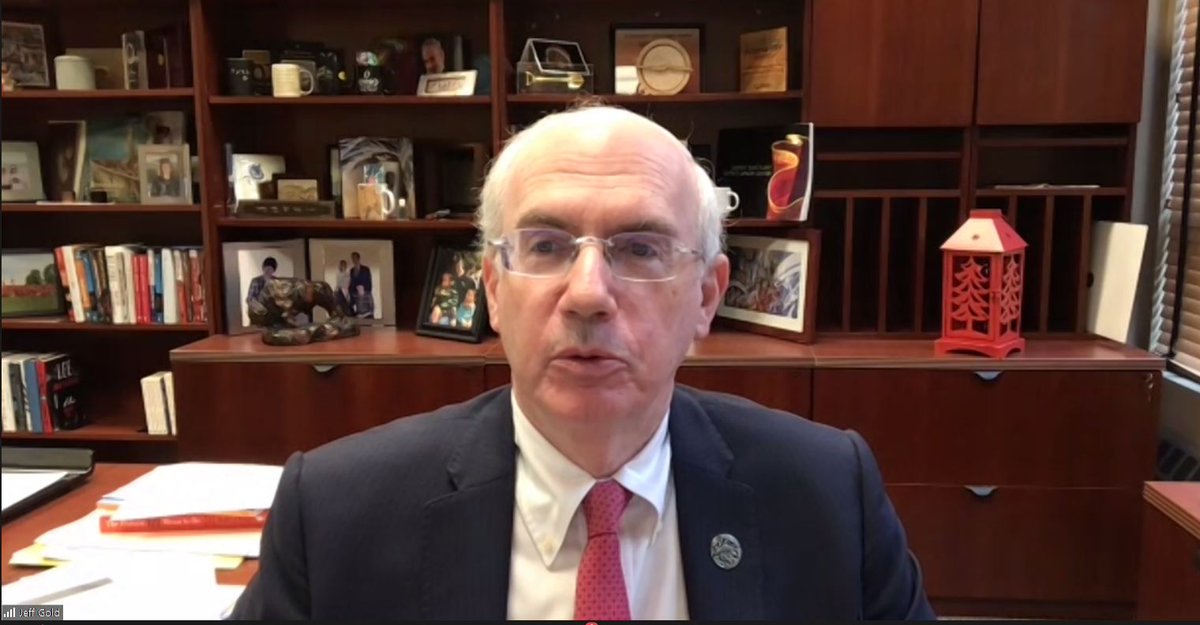"As we celebrate #AAPIHeritageMonth, the key word is 'belonging' for our patients, faculty, staff and students."
- Chancellor and Provost @jeffreypgold welcomes keynote @knguyenpoetry at @unmc @NebraskaMed for Asian American Heritage Month.
- Chancellor and Provost @jeffreypgold welcomes keynote @knguyenpoetry at @unmc @NebraskaMed for Asian American Heritage Month.

"Poetry and medicine are rarely mentioned in the same sentence, which is why I am so excited to join the two today. It is the art of taking what is unknowable and making it known."
- @knguyenpoetry, Vietnamese American award-winning poet and keynote for #AAPIHeritageMonth
- @knguyenpoetry, Vietnamese American award-winning poet and keynote for #AAPIHeritageMonth

"What makes narrative medicine so important is its emphasis on the literary arts. It boldly claims that an understanding of storytelling is necessary in medicine. It transforms a patient from symptom input to a real person who lives outside the diagnosis."
- @knguyenpoetry #AAPI
- @knguyenpoetry #AAPI

"Language is the only bridge that a patient has. The conversation between the doctor and patient is a yearning for connection before it is anything else. Care does not happen outside of that overlap."
- @knguyenpoetry at #AAPIHeritageMonth keynote at @unmc @NebraskaMed
- @knguyenpoetry at #AAPIHeritageMonth keynote at @unmc @NebraskaMed

"Care happens at the intersection of our 2 lexicons: my lived experience and the doctor's technical expertise. Narrative medicine trains doctors to see the gap between stories."
- Poet @knguyenpoetry at #AAPIHM keynote at @unmc @NebraskaMed
- Poet @knguyenpoetry at #AAPIHM keynote at @unmc @NebraskaMed

"Empathy is not an exact science. It is always an approximation. But we can only hope to get closest to the best approximation by setting our egos aside and listening more closely in healthcare."
- @knguyenpoetry at #AAPIHeritageMonth on narrative medicine
- @knguyenpoetry at #AAPIHeritageMonth on narrative medicine

"I did not grow up in a house where it felt safe to be mentally ill. Growing up, we did not have the language for mental illness and therefore the ability to ask for help with it. I suffered as a result."
- @knguyenpoetry keynote at #AAPIHeritageMonth at @unmc @NebraskaMed
- @knguyenpoetry keynote at #AAPIHeritageMonth at @unmc @NebraskaMed

"Language has been my tool to change the silence within 1 generation about mental health. The best thing we can do is to talk about it."
- @knguyenpoetry keynote at #AAPIHeritageMonth and #MentalHealthAwareness at @unmc @NebraskaMed
- @knguyenpoetry keynote at #AAPIHeritageMonth and #MentalHealthAwareness at @unmc @NebraskaMed

Q: If you could go back and talk to your younger self who did not respond to the depression screening, how would you encourage them to share and not be afraid?
A: @knguyenpoetry: You never know until you take the first step and take the leap. Loneliness thrives on silence.
A: @knguyenpoetry: You never know until you take the first step and take the leap. Loneliness thrives on silence.

Q: how could medicine better address intergenerational trauma?
A: @knguyenpoetry: for children of Vietnamese refugees, there was often silence at home. Parents would not talk about it to avoid traumatizing their kids. Silence kept a family together & also breaks it apart.
A: @knguyenpoetry: for children of Vietnamese refugees, there was often silence at home. Parents would not talk about it to avoid traumatizing their kids. Silence kept a family together & also breaks it apart.

Q: for people who lack verbal language - what about nonverbal communication?
A: @knguyenpoetry: there is a joke that in Asian families parents express love by cutting up fruit - not verbally apologizing. Sometimes it isn't through words that we communicate. Context matters.
A: @knguyenpoetry: there is a joke that in Asian families parents express love by cutting up fruit - not verbally apologizing. Sometimes it isn't through words that we communicate. Context matters.
Wonderful to hear the presidents of our #AAPI Student Association and Employee Resource Groups to share resources and the need for connection! Congrats to Stephanie Dong, @UNMCCOM med student, and Tori Ho, a trusted leader in the @NebraskaMed office of DEI! 

"Belong is a key word. Healthcare is about 'care.' Care means really careful listening and understanding what the patient is telling you. The healing arts applies to patients and caregivers to explore our own feelings."
- @NebraskaMed CEO Dr. Linder at #AAPIHeritageMonth
- @NebraskaMed CEO Dr. Linder at #AAPIHeritageMonth

.@threadreaderapp unroll
• • •
Missing some Tweet in this thread? You can try to
force a refresh

 Read on Twitter
Read on Twitter
























